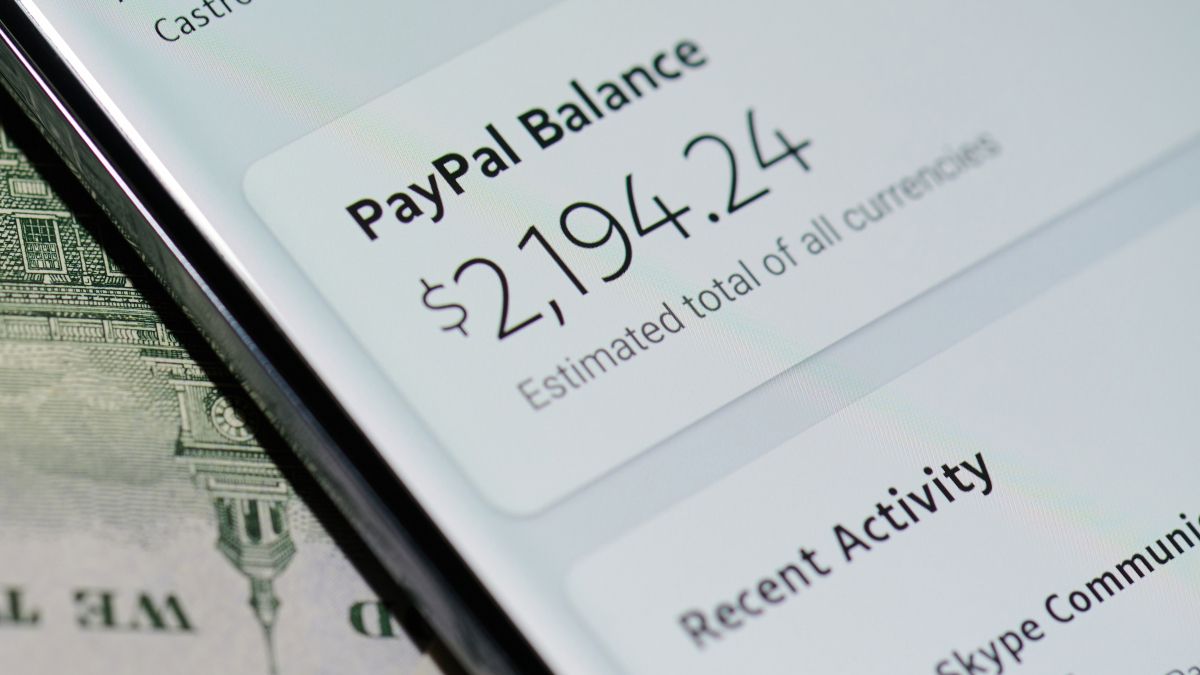
Beware: Investment Schemes From Facebook Connections on the Rise - Protect Yourself with These Essential Tips

Beware: Investment Schemes From Facebook Connections on the Rise - Protect Yourself with These Essential Tips
Key Takeaways
- Accounts are hacked, leading to financial scams disguised as investment opportunities.
- Fake bank screenshots are common and easily created to lure victims into fraudulent schemes.
- AI technology may exacerbate the issue, creating convincing testimonial videos to promote scams.
Over the past few months I’ve noticed a worrying trend in my Facebook feed. People I know in real life are pushing a variety of very sketchy “investment” opportunities with “evidence” of the enormous payouts they’ve received. It shouldn’t have to be said, but please don’t fall for this!
Facebook Accounts Are Getting Hacked
Facebook account hacking is a pernicious issue, and even tech-savvy users can get caught out since these attacks are so relentless. You need to be lucky all the time, but the hacker only has to be lucky once. If nothing else, this means you should always treat anything posted by your friends on Facebook as potentially suspicious. Most importantly, if you have another way of contacting someone besides Facebook, you should confirm any information they post on a separate channel. Give them a call, or call someone who lives with them, and confirm the information before acting on it.
Criminals Know You Trust Your Friends More Than Strangers
Facebook accounts are valuable to hackers for a variety of reasons. First, if they manage to hack one account, it becomes easy to hack more accounts. Usually, a compromised account will send out a malware-infected link to other people in the network. Since the link is apparently coming from someone they know, people open it uncritically. Then their networks get infected the same way, and so on.

An example of a trading offer. Note how the text invites users to send direct messages.
With the original account owner locked out, the hackers can post anything they like, including encouragement and calls to action for people to get in on “investments”. The actual financial scams come in a virtually infinite variety. There are advance fee scams, cryptocurrency pyramid schemes, classic pyramid schemes, and “binary options” which is actually just a form of gambling . I have friends and family who have been the victims of these scams, and the results are truly ugly.
One common scam I’m seeing right now has to do with foreign exchange brokers who promise to give huge returns on your investment, with some risk. These are real companies who really trade currencies, but they aren’t actually trying to make money for their “clients”. They make their money from the fees they get, and can hide behind the inherent risk of this practice if they lose all your cash.
What’s worrying is how people are promoting these schemes on Facebook. They post videos of themselves giving testimonials, post bank account screenshots, and invite others to get in on the action. These are not marked as paid promotion, so either these accounts have been hacked, or in some cases they are paid to do undisclosed promotion for a sketchy scheme.
These posts are often flooded with bot-like comments from other compromised accounts in their circle, giving the illusion of an organic conversation. However, since we see dozens of people posting the exact same thing within the same friends circles, it’s clearly manufactured.
Although I know people personally who have been victims of these scams, and I have plenty of people in my Facebook feed who have clearly compromised accounts, or in some cases seem to be complicit, I have opted not to post any screenshots that can potentially be traced back to specific people. However, my aim here is to warn you against this entire class of scam, not the specific approach scammers are taking at the moment.
Those Banking Screenshots Are Easy to Fake

One important fact you should know, is that faking a screenshot of a website is extremely easy. Just like those fake PayPal balances , all it takes is five seconds in a browsers element inspection tool, and you can make any website say anything.
The most obvious question you should be asking yourself, is why this person is so desperate to share this “investment” opportunity in the first place? What do they stand to gain? Either the account is hacked, or the person is complicit and is taking money in exchange for roping more people into the scam,
AI Technology Can Make It Worse

meyer_solutions/Shutterstock.com
At first, I was convinced that all of these accounts were simply hacked, but then some of them started posting testimonial videos. It occurred to me that these could be AI deepfakes , but looking closely at them for the telltale signs, it doesn’t seem that way. Which suggests that some of these people may be complicit in the scams. However, deepfake technology has advanced to the point where this is also a totally plausible answer. Either way, you should find these videos equally unconvincing regardless of whether they are faked or not.
Never Invest Money Without Licensed Help
Whether you’re looking at a hacked account, a person who’s been bought off by scammers, or a friend who really sincerely believes what they are saying, you should never invest any money in some random scheme you encounter on Facebook. This is especially true if you don’t actually understand the investment and how it works. This is how so many people have been caught by crypto pyramid schemes, since anyone who knows how cryptocurrency works would immediately know the scheme is infeasable.
I’m not even going to list any of the telltale signs that something is an investment scam, since you should never invest your money in something on a whim. There is never so much time pressure on you that there’s no time for due diligence. Most importantly, only invest in something that’s sanctioned and protected by financial regulators. Make sure you 100% understand how the investment works, if you have any recourse if things go wrong, and what the risks are that you’re taking on.
Also read:
- [Updated] Dairy Digest Complete Review of Ice Cream Recorder App
- Before Going Green: The Critical Checklist of Owning an EV
- Boundless Interaction with ChatGPT: A Comprehensive Guide to the 'ChatGPT Everywhere' Solution
- Complete Review & Guide to Techeligible FRP Bypass and More For Oppo A18
- Comprehensive Guide: Overcoming Propsys.dll Missing Challenges
- DIY Fixes for the Five Biggest TV Repair Challenges Explained
- Exquisite Series for Animating Fonts
- Leadership Change at OpenAI: CEO Sam Altman Steps Down - Consequences for AI's Communication Frontier, ChatGPT
- Step-by-Step Guide: Accessing ESPN Plus on Your LG Smart TV
- Web-Based Gag Generator
- Title: Beware: Investment Schemes From Facebook Connections on the Rise - Protect Yourself with These Essential Tips
- Author: Stephen
- Created at : 2024-12-03 18:05:02
- Updated at : 2024-12-04 20:37:26
- Link: https://tech-recovery.techidaily.com/beware-investment-schemes-from-facebook-connections-on-the-rise-protect-yourself-with-these-essential-tips/
- License: This work is licensed under CC BY-NC-SA 4.0.